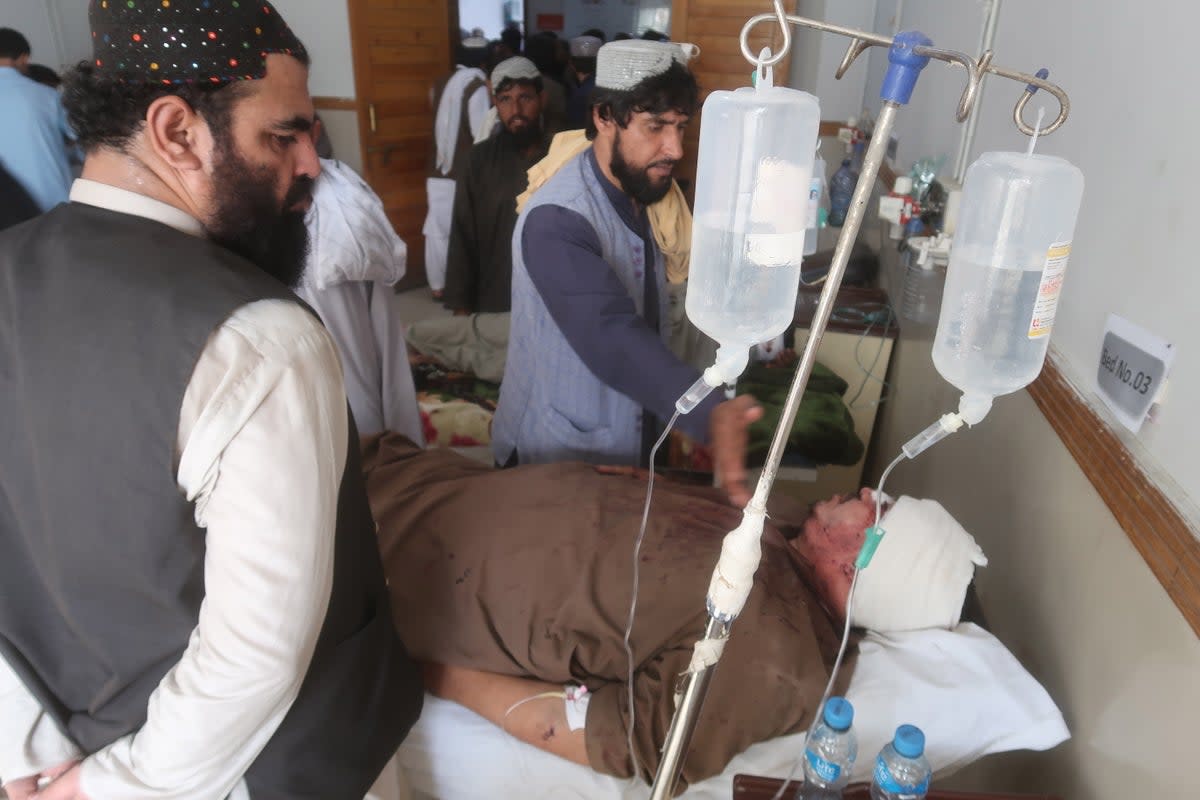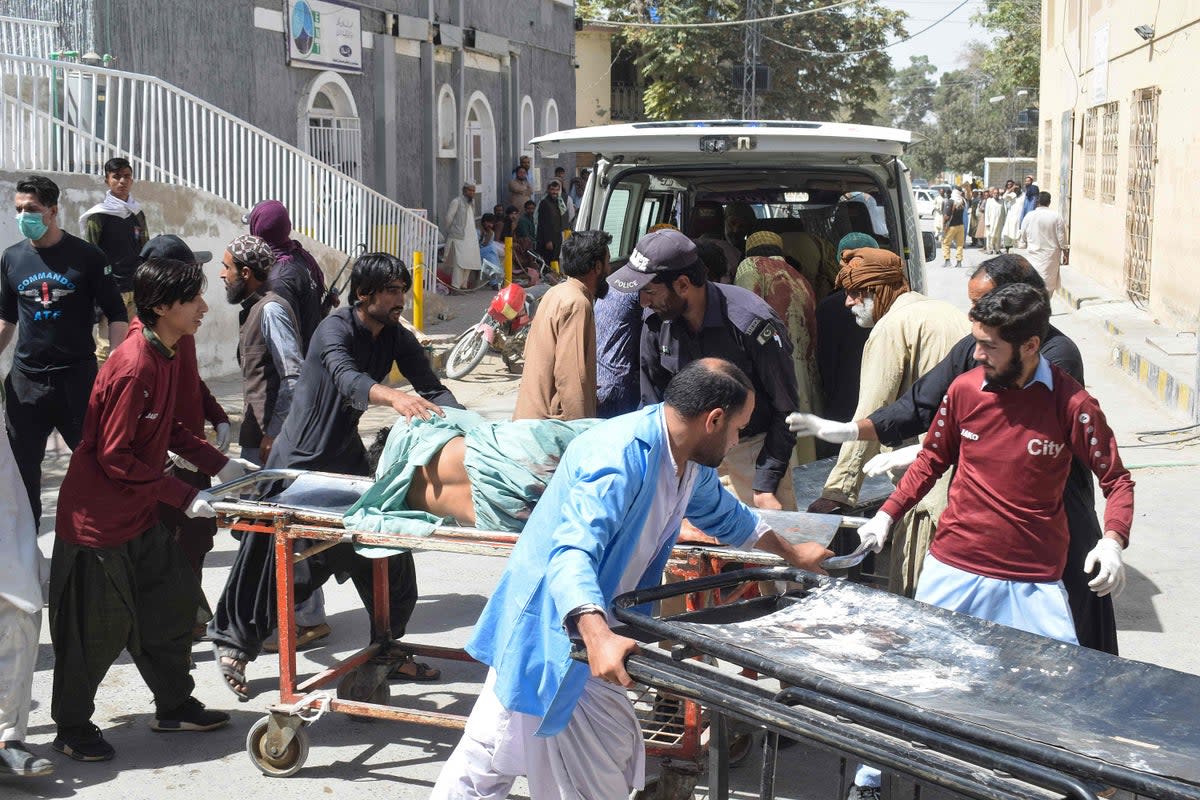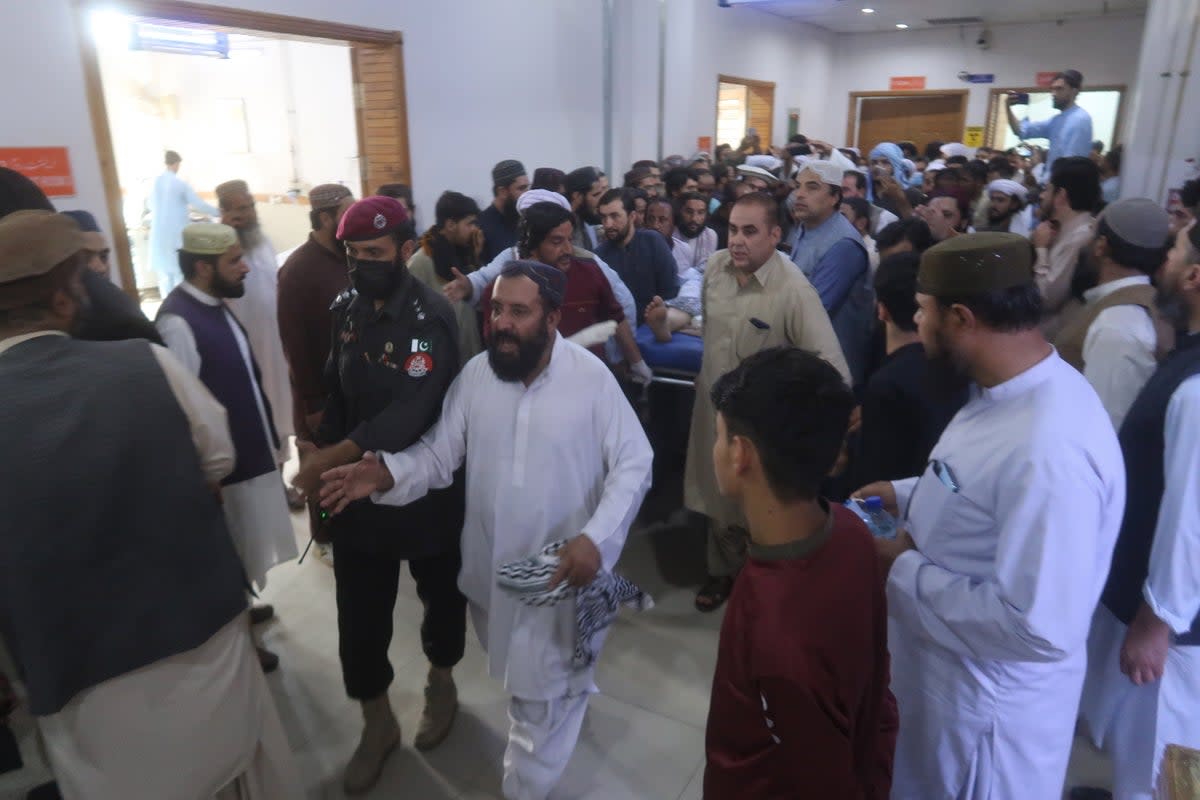Blasts at Pakistan mosques kill 57 during events marking Prophet Mohammed’s birthday

Blasts tore through two mosques in Pakistan on Friday, killing at least 57 people and injuring dozens amid events marking the birthday of the Prophet Mohammed, police and health officials said.
Police said the first suspected suicide blast took place near a mosque in Mastung, a district in Balochistan, and amid warnings of a heightened threat of terror attacks during festivals celebrating the birthday of Islam’s prophet.
A senior police officer was among the 52 dead, government administrator Atta Ullah told the Associated Press, identifying him as deputy superintendent of police Mohammad Nawaz. More than 50 others were wounded in the attack.
In a separate incident, a blast ripped through a mosque located on the premises of a police station in Hangu, a district in the northwester Khyber Pakhtunkhwa province, killing five people.
The mud-brick mosque collapsed because of the impact of the blast and rescuers were removing the debris to pull out worshippers from the rubble. Police said it was not immediately clear what caused the blast.
No one claimed responsibility, and it was unclear what caused the blast when around 40 people were praying at the mosque. Militant attacks have surged since 2022 when a ceasefire broke down between the government and the Tehreek-e-Taliban Pakistan (TTP), an umbrella body of hardline Sunni Islamist groups.
The TTP, responsible for some of the bloodiest attacks in Pakistan since its formation in 2007, denied responsibility for Friday’s blasts.
Health officials gave the updated death toll as a senior police officer said a suicide bomber deliberately “detonated himself near the vehicle of the deputy superintendent of police”.
The blast is the second attack in Mastung this month, with an earlier explosion on 14 September targeting a rally of the Jamiat Ulema-e-Islam Fazl political party. Several senior party members were wounded in that blast.
Friday’s bombing came despite authorities ordering security forces to be on heigh alert for the festival of Mawlid an-Nabi, when Muslims around the world celebrate the Prophet Muhammad’s birthday.
The festival traditionally involves large public gatherings where free food is distributed to the public.
Pakistan’s president Arif Alvi condemned the attack and asked authorities to provide all possible assistance to the wounded and the victims’ families.
Caretaker interior minister Sarfraz Bugti denounced the bombing and expressed sorrow and grief over the loss of lives. He said it was a “heinous act” to target people in the Mawlid an-Nabi procession.


The government had declared a national holiday for the birth anniversary of Prophet Muhammad, and President Alvi and caretaker Prime Minister Anwaarul-haq-Kakar in separate messages had called for unity and for people to adhere to the teachings of Islam’s prophet.
Isis in Pakistan has previously claimed responsibility for deadly attacks in Balochistan and elsewhere.
In July, more than 40 people were killed in a suicide bombing in northwestern Khyber Pakhtunkhwa province at another religious political party’s gathering.
Additional reporting by agencies
